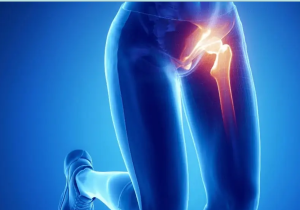The majority of people who are infected with coronavirus experience a mild or asymptomatic disease which can be treated at home. So if you’re experiencing the telltale signs of the virus, we discuss here what should you do to feel better?
|
Do Not Panic |
|
You are simply too precious |
What are the symptoms to look for?
The symptoms of COVID-19, the disease caused by coronavirus, include:
- Fever (a temperature above 37.8°C or skin whichfeels hot to touch).
- A new, continuous cough.
- A loss of or change to your sense ofsmell or taste.
- Shortness of breath and difficulty breathing.
- Fatigue.
- Headaches.
- Sore throat.
- Aches and pains.
If you experience fever, lose your sense of smell or taste or develop a new continuous cough, you should self-isolate immediately. Those experiencing a mild illness don’t need to seek medical attention, but you should book a test online.
How to self-isolate?
Upon developing above mentioned symptoms self-isolate and not leave your house for any reason, unless advised medically. The same applies if you’ve been in close contact with someone with a confirmed case of COVID-19.
What does self-isolation mean in practical terms?
- Isolation should be for a minimum period of 14 days from the start of symptoms. If you live in a household with other people, everyone else must also isolate for 14 days. In case of any subsequent infection in the household, the self-isolation can extend for more than ten days in total. Keep the older people safely away, within the household, or if possible, at some other location.
- Stay at home or in your room as much as you can with open windows for ventilation. No contact with others, including visitors.
- Have food, medicines or other essentials delivered at home through family members, friends or delivery services. Have the groceries or food delivered at your door, and avoid face-to-face contact with the delivery person.
- Do not share utensils, bed linen, towels or other household items with others whilst isolating.
· Bathroom usage
If one can, then use a separate bathroom. If using shared bathroom:
Ø Use your own towels, including hand towels, toothbrushes and washcloths and keep them separate from the rest of the household.
Ø Clean the toilet and bathroom every time you have finished using them. Preferably the sick person should go last and thoroughly clean afterwards.
· Kitchen usage
Ø Avoid using it when others are present in the kitchen.
Ø The sick person should preferably take meals in her room to eat.
Ø Preferably use separate utensils, cutlery and crockery for yourself.
Ø Do your dishwashing using warm water and your normal detergent. Dry items thoroughly afterwards using a separate tea towel.
Ø Thoroughly clean the touched kitchen surfaces after use.
Ø Any dirty laundry can be washed alongside other people’s items.
Looking after yourself at home
As with other viruses such as colds and flu, taking it easy and looking after yourself are crucial to your recovery. You should:
- Drink plenty of fluids. Drink enough water so that your pee is a pale, clear color.
- Avoid alcohol as this will makes you more dehydrated and further compromises those with week liver function.
- Get plenty of rest. You should isolate yourself at home if you have any symptoms of coronavirus, and avoid any strenuous activity whilst you are unwell.
- Use over-the-counter medicines to treat some of your symptom.
Medications
There is currently no cure for COVID-19. Treatment aims at managing and reducing symptoms until recovery. Overwhelming infections are mild and manageable at home starting with self-isolation. A proportion of corona infected people would require hospital care. Older people and those with underlying health conditions run the risk of severe or critical infections.
Painkillers
Patients can take paracetamol or ibuprofen when self-medicating for symptoms of COVID-19, such as fever and headache, and should follow expert advice if symptoms get worse.” Commonly used painkillers like ‘Combiflam’ or ‘Flexon’ (both being over the counter) have a combination of both Paracetamol and Ibuprofen. Initial concerns about possible link between taking NSAIDs (ibuprofen) and developing more severe infection have proved to be completely untrue.
Other symptoms
Cough medicines / syrups (avoid those containing a combination with paracetamol or ibuprofen such that there is no overdose of these drugs) or cough suppressants can help reduce your cough. Throat lozenges and remedies like honey and lemon may improve a sore throat, or simply gargles with lukewarm water.
Antibiotics
Do not take them to treat coronavirus. Antibiotics will not improve coronavirus because they do not act against viruses.
Antibacterial hand washes (unless they’re also labelled as antiviral), cleaning products and hand sanitisers also won’t necessarily be effective in killing the virus on surfaces or your hands. Only hand sanitisers containing at least 60% alcohol are effective at killing viruses.
Traditional remedies
Advocacy by members of RAMDEV AAYOG (likes of V K Paul) notwithstanding such a ‘miracle’ cures backed by scientific evidence is yet to be found.
ABOVE ALL
HAVE CHATS, AND GOOD HUMORED TALK WITH FRIENDS, RELATIVES AND FAMILY
You need to seek help if:
- You cannot cope with your symptoms at home.
- Your condition gets worse.
- You still have fever, are feeling generally unwell or have other symptoms after a week.
- You are unable to do everyday tasks such as looking at your phone, reading or getting out of bed.
PROGRESSIVE MEDICOS AND SCIENTISTS FORUM













